News and Highlights
This is a list of past iUTAH EPSCoR news from 2012 to 2018.
June 1, 2016
Study: Snowpack Shifts as Wasatch Warms
University of Utah and iUTAH researcher Court Strong was recently featured in the news. A new study by Strong and his colleagues finds that the spring snowpack may be more vulnerable to a warming climate in coming decades.
A news release written by the University of Utah said “The study, accepted for publication in Geophysical Research Letters, models the year-to-year variability in precipitation and temperature in Utah’s Wasatch Mountains and other ranges in the West. Jason Scalzitti, a graduate student in atmospheric sciences, and professors Court Strong and Adam Kochanski found that above a threshold elevation, the amount of spring snowpack is dependent more on the amount of precipitation in a year than the temperature. In other words, whether a year is wet matters more than if it’s warm. But below that threshold, temperature matters more. By the end of the century, according to the study, that threshold will move uphill by around 800 feet in the Wasatch and more in the Sierra Nevada, Cascades and parts of the Rocky Mountains."
In an excerpt from the KUER Radio article, "Strong and his team at the University of Utah suggest a different question: 'How warm will it be?’ That’s because of climate change. 'In the current climate, the springtime snowpack depends mainly on the precipitation we had in a particular winter and how warm it was in that winter plays a secondary role,' he says. 'But as we go out to the end of the current century, those two drivers switch places.’"
Press: UU News | EurekaAlert | KUER Radio | Inside Climate News
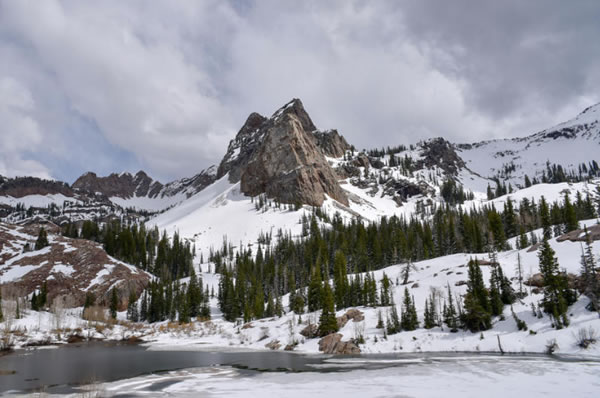
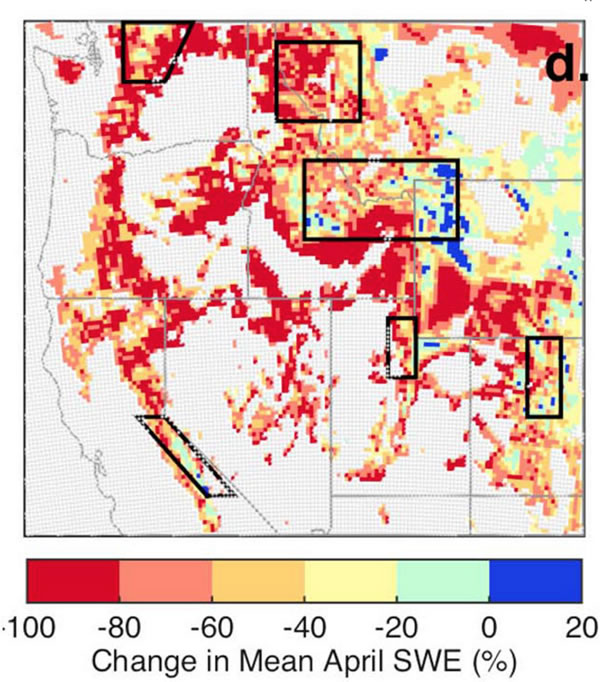
May 10, 2016
Ecologist James Ehleringer Elected To National Academy Of Sciences
iUTAH researcher James Ehleringer, distinguished professor of biology at the University of Utah (UU), is among 84 U.S. scientist-scholars and 21 foreign associates from 14 countries elected at the Academy’s Annual Meeting in Washington, D.C. In a UU News statement, Ehleringer says he learned of his election when five of his colleagues, including UU geochemist and National Academy of Sciences member Thure Cerling, called Ehleringer at 7:30 a.m. Tuesday, May 3 from Washington, D.C. to share the news. Ehleringer says he is “overwhelmed, elated and excited” by the recognition. Of his colleagues within the National Academy, he says, “It’s an honor to be considered among their ranks.”
In addition to this honor, Ehleringer was also awarded the Rosenblatt Prize for Excellence, the UU’s most prestigious faculty award. An excerpt from the award announcement recognizes Ehleringer as “one of the most influential scientists in the world in plant ecology and stable isotope ecology…. He was the first to initiate a cross-campus conversation about how to embrace and incorporate Red Butte Creek into the university’s academic agenda, and he spearheaded a National Science Foundation grant to provide scholarships to first-generation students to study in STEM fields. Through it all, he has impacted the lives of numerous students, mentoring them through their time at the U and beyond.”
“I am delighted that Jim’s accomplishments have been recognized by these prestigious awards,” said Michelle Baker iUTAH EPSCoR Project Director. “iUTAH came about because of Jim’s vision and leadership in 2009 when Utah became eligible for EPSCoR. He is an invaluable member of our team.”
Ehleringer has been recognized with the state of Utah Governor’s Medal for Science and Technology, received the Student’s Choice Award for Teaching, the U’s Distinguished Research Award, the Alexander von Humboldt Fellowship, was named an American Geophysical Union Fellow, an American Association for the Advancement of Science Fellow.
Press: UU News
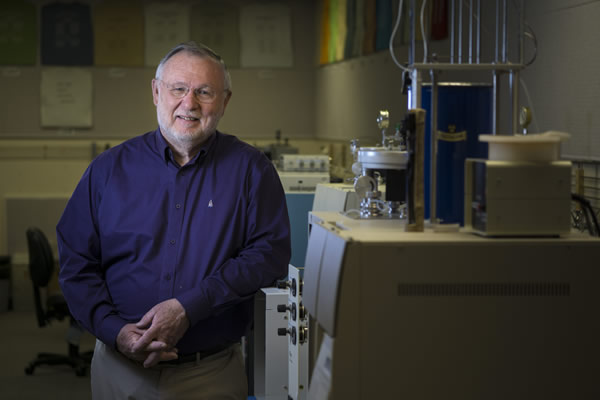
May 3, 2016
USU Soil Scientist Discusses New Device To Assess Snowmelt
iUTAH researcher Scott Jones, a soil scientist from the department of plants, soils and climate at Utah State University was interviewed by KUSU reporter Katie Peikes about a new device to aid in predicting the state’s water supply. Jones explains the probe’s function saying it “fires a heat pulse for eight seconds and then you measure the temperature near the needle for another two minutes,” adding that “we have a model that describes this heating in the soil and you fit the model to those temperature rise measurements. The parameters that are fitted are basically describing the thermal conductivity and the thermal diffusivity of the soil.”
"We’re interested in soil moisture in the mountains because one of the aspects of the soil and the vegetation on the surface is that it forms the bottom boundary for all of the weather and climate interactions, and so understanding that boundary becomes quite important for getting better estimates of climate change and weather," Jones said.
Press: KUSU Radio

April 18, 2016
Week-long Celebration of USU's Research Excellence

Utah State University Research Week 2016 featured iUTAH researchers and graduate students Kshitij Parajuli, Elizabeth Ogata, and Enjie Li. Talks and poster presentations by USU undergraduates and former iUTAH iFellows include Viviane Baji, Matthew Barnett, Jesse Fleri, and Josh Gathro. The Office of Research and Graduate Studies hosts a series of events annually in April, showcasing exceptional research and researchers at USU.
The final event on the Research Week calendar, Ignite USU, is an atypical lecture series where nine graduate and undergraduate students, “enlighten us, but make it quick.” Students share the stories behind their research and what drives their success in five minute talks with presentation slides advancing every 15 seconds. Enjie Li, doctoral student in the Department of Environment & Society, opened the Ignite USU series with her talk “Happy Baby, Frustrated Collaborator.”
Press: Utah State Today | USU Statesman | The Herald Journal
April 12, 2016
How climate change dries up mountain streams
University of Utah and iUTAH researcher Paul Brooks was recently featured in the news. Here’s an excerpt from the EurekaAlert article:
The western United States relies on mountain snow for its water supply. Water stored as snow in the mountains during winter replenishes groundwater and drives river runoff in spring, filling reservoirs for use later in summer. But how could a warming globe and a changing climate interrupt this process?
In a new study in Environmental Research Letters, a team of hydrologists that includes University of Utah professor Paul Brooks answers that question by simulating isolated climate change effects on Rocky Mountain stream systems, varying the type of precipitation (rain vs. snow) and the amount of energy (temperature) in the system. The answer, they found, depends less on how water enters the stream watershed, and more on how it leaves.
Press: UU News | EurekaAlert | KSL Radio | KUER Radio | ABC4 Utah | Deseret News | Science Daily | KULR TV | KTMF/KWYB
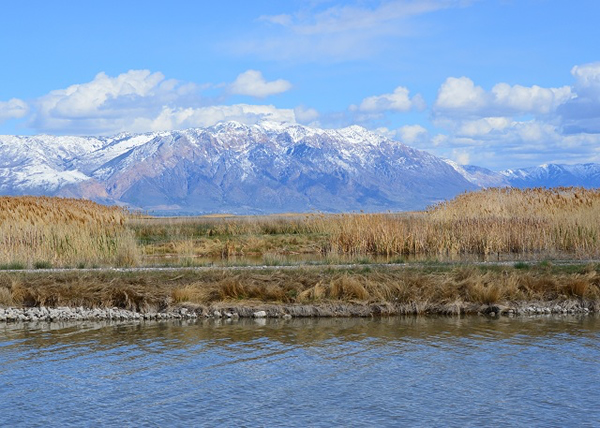
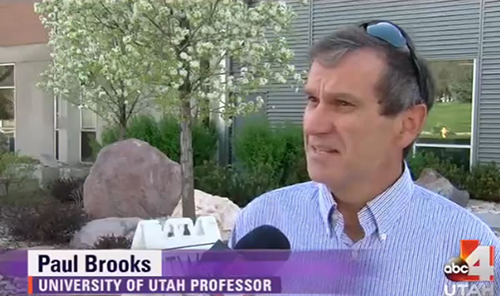
April 11, 2016
Transdisciplinary Research Calls
Melissa Haeffner talks about how her collaborations with iUTAH led to her interest in a transdisciplinary approach to research in the Utah State University Spring 2016 alumni magazine. As an iUTAH collaborator, she is part of a multi-institutional, interdisciplinary team of scientists exploring population growth, climate change and land use are affecting Utah’s water resources. This December, she will be one of 78 women participating in a 20-day women-in-science leadership trip to Antarctica.
“I really do believe that if we’re going to be talking about climate change, if we’re going to be talking about natural resources, we can’t just study ice and water and air and carbon,” says Haeffner. “The reason why these are problems is because they are problems for humans, problems for our human survival. They are anthropogenic problems, because of our impacts on the earth. And so to study these things without social sciences, I think, is just setting ourselves up for failure. It’s too big, too important a piece to miss.”
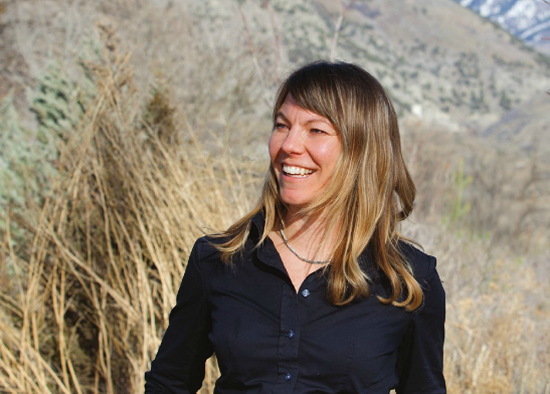
Credit Donna Barry, University photographer.


